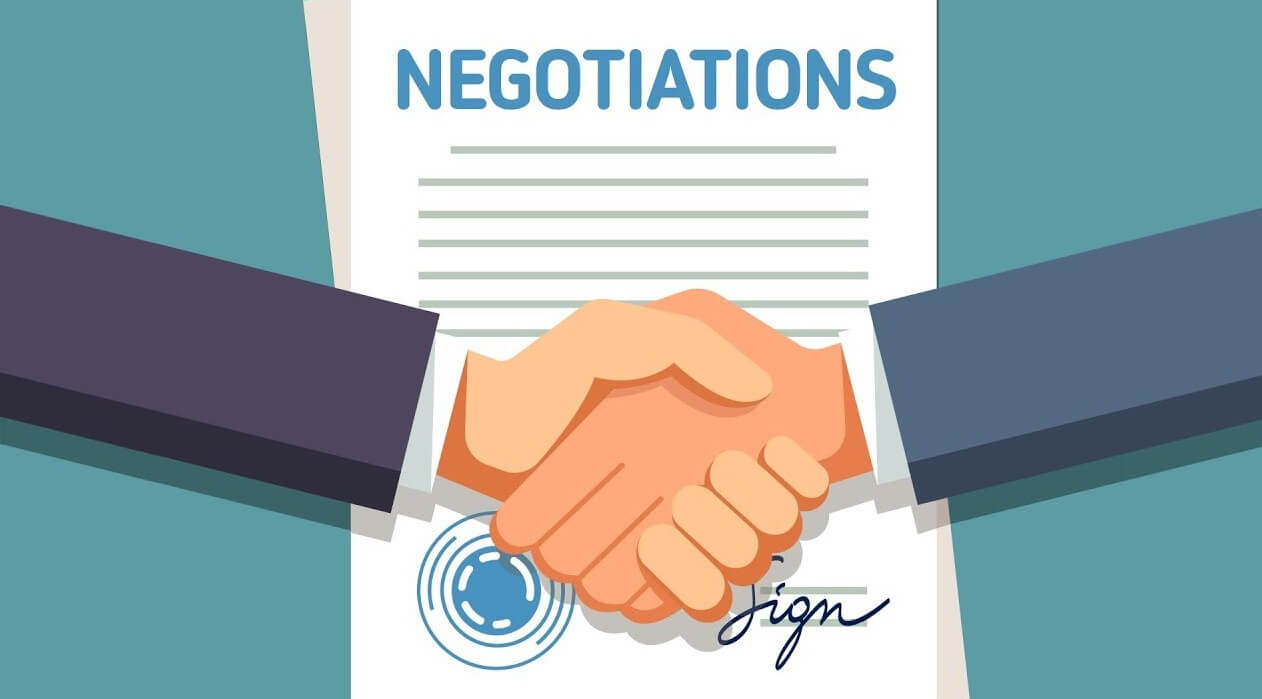There are many small business owners who want to buy or sell their products and/or services. One of the most complicated parts of this process is negotiating a fair price for both parties. In recent years there has been an increase in businesses that offer lease-to-own agreements as well as a sale by owner (owner financing). These options are great for people who don’t have a lot of money available upfront but still want to make some big purchases. Let’s explore more about lease and sale negotiations!

What is a lease negotiation?
Lease negotiation is a process of negotiating an agreement for a short-term rental. Typically, these agreements include monthly payments with the option to buy at a set date in the future.
The benefits of leasing:
Lease negotiations are good for people who don’t have the cash upfront to make big purchases and there may not be as many tax implications. It also allows you more time to save up money before purchasing something that might go down in value if it sits on your shelf too long or will become outdated quickly because technology changes so rapidly today! A potential downside could be that it can take some time before actually owning what you've rented out which isn't great if you need access immediately but this should.
Negotiating with the landlord or tenant
Negotiating with the landlord or tenant is a different process for leasing and selling. For leases, you will want to go through your lease carefully before deciding on how much of a rent increase you are willing to accept. Remember that there should be plenty of space between what they offer and what you think it’s worth! When negotiating for sale, however, many landlords may agree to remove any contingencies such as "subject to approval" clauses in order to get their property sold quicker. This means less time spent waiting around for outside sources' approval which can make the difference when trying to hold onto already vacant spaces. You might have luck by offering them something else in return like an extension or maybe even getting rid of certain fees so don't feel.
Tips for negotiating a lease agreement
-When negotiating for a lease, remember to have your paperwork in order. It's imperative that you are as prepared and organized as possible so the landlord knows what they're getting into by leasing out their property. This means having up-to-date copies of your credit report or bank statements if you plan on paying all upfront payments before beginning negotiations, not only because it helps establish trust with them but also shows this is something serious and worth taking a chance on!
-What may seem like an insignificant detail could actually make a huge difference when trying to finalize negotiations - be sure to take note of any clauses which might affect either party depending on how things go with the contract. You'll need to consider who will hold responsibility.
Research Market
Tip: When in negotiations with a seller, be sure to find out who will hold responsibility for any clauses which may affect either party depending on how things go with the contract. You'll need to consider who will hold responsibility should you and your tenant not abide by what's outlined in the lease agreement.
-Knowledge is power when it comes to leasing negotiation so make sure that both parties have an understanding of all financial obligations they are agreeing to before entering into the contract!
-So if you're at risk of being late or missing payments, don't hesitate from asking about having penalties written into your rental agreement - this way, there won't be any surprises down the road threatening eviction notices! This also helps protect tenants.
Things to Look for in a Residential or Commercial Lease
-Before signing a lease or contract, it is important to be aware of the following.
-Are there any hidden fees that you may incur after agreeing to rent? For example, are utilities and use of laundry facilities included in your monthly rental rate? If not, what will these charges cost on an individual basis? Who can you contact for questions about those items if something changes with the property management company during your stay at the place?
-What happens when someone moves out before their time is up (or they don't pay rent)? Is there a penalty fee involved here - or do tenants simply forfeit their security deposit as compensation for unpaid rent upon moving out early from this type of situation?

